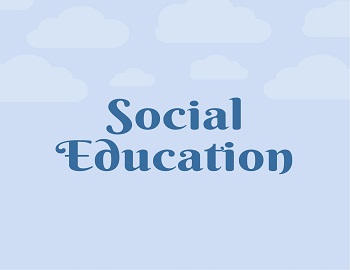Levels of Discipline:
There are four levels of discipline-
(1) The Prudential Level- When a child believes in nature and is afraid of being punished by the nature for every wrong step taken by him, then he will avoid acting against nature. He will try to stop forward according to natural laws. This awakening is a natural awakening and an individual or a child is conscious to act properly and according to the will of nature. Such a personality gives birth to an internal discipline. Such a student will try to adjust himself emotionally. The supporters of this view are of the opinion that let the child experience himself. His personal experience will mould him accordingly. If he stretches his hands towards the fire, do not check him, the burning flame will automatically teach him that fire burns. But this type of natural learning is not at all possible in all stages. Further, a lot of toils is wasted in learning through this process, although it is permanent in nature and a child or a man learns practically and naturally.
(2) The authoritative Level- When the discipline is maintained through authority with the help of rewards or punishment then it is called authoritative discipline. Such maintenance of discipline is temporary. A teacher should always try to maintain discipline, almost with the aid of rewards. Punishment is not so precious as the personality of the student. By this, the student’s personality is crushed and the development of inner capabilities is hindered, If punishment is unavoidable, the teacher should take this step properly and carefully.
(3) Social Conditions- ‘Man is a social animal’. His life is directly or indirectly connected with society. He can never live apart from it. Therefore, he is also expected to obey the social order. All his actions must be, in accordance with the will of society. There are certain ideals before him and he has to follow them in order to make society stable and advanced. If any particular person does not act accordingly, he is the subject of hatred toward others. Society does not favour such people. In this way, discipline comes with the conscious efforts of the individual himself and thus this automatic existence of the discipline is called discipline under social conditions.
(4) The Personal Level- According to this condition, there is nothing like force or fear or social consideration in the maintenance of discipline. An individual himself tries to be a good person. He is inspired by certain ideals. Ideal teachers are the guiding stars for students. They are followed from ‘A to Z’ by the students. Even the students try to copy out the handwriting of their teacher possessing a good hand. In this way, it is the duty of a teacher to be an ideal person. Thus, there are certain children or men who want to become disciplined and desirable to society by following the ideals before them.
Discipline, its Effect and Importance:
There is a book called “Handbook of Suggestions”, in which on page 24 certain suggestions have been given. These suggestions are about the ‘Discipline’ among the students. Few lines are quoted here-
“Discipline means whereby children are trained in orderliness, good conduct and the habit of getting the best out of themselves. The crucial test of their soundness is whether it represents a real sense, on the part of the children of the tightness of the behaviour that is expected of them. It cannot be considered as good unless it is founded upon worthy ideas of conduct that are becoming or have become embedded in the children’s characters”.
In this way, discipline is that instrument by which a child or a man is trained to bring out his refined behaviour to society. Such a well-behaved and well-mannered child is expected to act in such a way as to be an ideal before other fellow figures. Through his disciplined mind and actions, he should create an ideal environment in the school or college.
Thus, discipline is of vital significance in making a country successful and a society cultured. For this, every teacher should inspire his pupils through the ideals to be likewise. An indisciplined country or society may be counted as uncultured.
According to Dewey, it is now clear that in the field of education, discipline is necessary.









Comments (No)